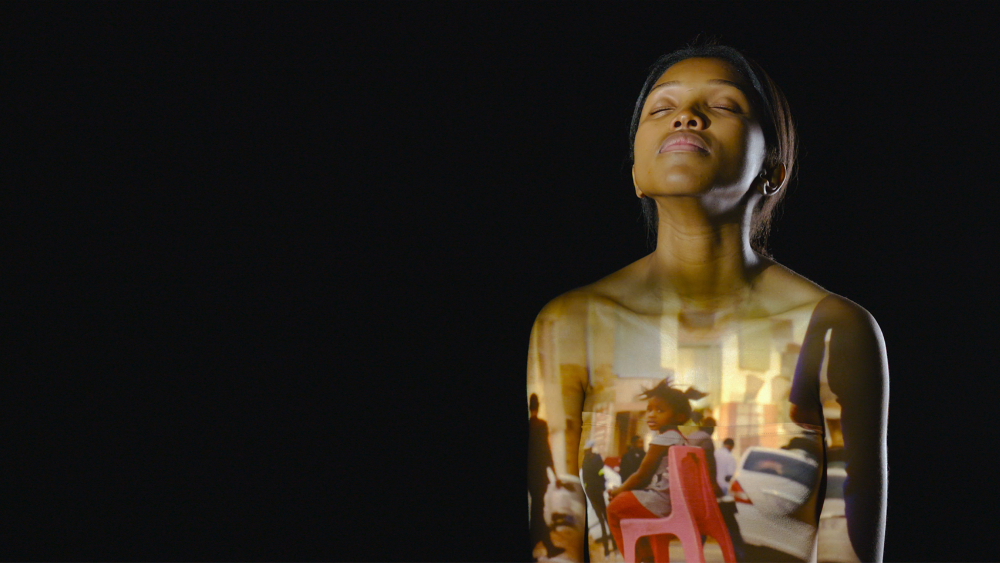
For the millions of people who have sexual characteristics that don’t neatly fit into the typical definitions of male or female, life is a constant struggle against misconceptions, biases and cultural norms that, from the moment of birth, attempt to fit us into the box that defines our sex — and, often, how we’ll be perceived for the rest of our lives.
To explore that conflict, veteran Romanian actor Tünde Skovrán — making her directorial debut — traveled to South Africa to follow two intersex people with parallel but divergent lives: Sharon-Rose Khumalo, a beauty queen who suffers an identity crisis after finding out she’s intersex, and Dimakatso Sebidi, a male-presenting intersex activist who is in many ways Khumalo’s polar opposite.
The result is an intimate, emotional portrait of intersex people living in a binary world, a reality that according to some estimates is experienced by up to 2% of the world’s population.
“Who I Am Not” world premieres March 5 at the Thessaloniki Documentary Film Festival. Written and directed by Skovrán, the film is produced by Andrei Zincă and co-produced by Paul Cadieux and Patrick Hamm. Executive producers are Patricia Arquette, M.J. Peckham, Andrei Zincă, Tünde Skovrán, Marc Smolowitz, Jafta Mekgoe, Danielle Turkov and Maryse Rouillard.
Intersex is an umbrella term that refers to a wide range of variations that might affect genitals, hormones, chromosomes and sexual or reproductive organs. Sometimes those variations appear at birth, sometimes in puberty. Sometimes, they’re not apparent to the naked eye at all. Amnesty International notes that “around 1.7% of the population is born with intersex traits — comparable to the number of people born with red hair.”
Dimakatso Sebidi (left) is an intersex activist in South Africa.
Courtesy of Thessaloniki Documentary Film Festival
As a woman accustomed to appearing on the other side of the camera, Skovrán said she “was always really attracted to stories and characters that somehow fall outside of the norm — that challenge society’s expectations. They make the audiences uncomfortable. They make the audiences grow.”
It was her fascination with the human body — the “instrument” she works with on stage and on screen — that led Skovrán to question what life is like for those whose bodies don’t conform to societal norms. That, in turn, led to South Africa, where in the early 2010s, a roiling debate took shape over the case of Caster Semenya, an intersex woman and Olympic gold medal-winning track star whose success had come under scrutiny because of her elevated testosterone levels.
Skovrán’s research brought her into contact with Khumalo and Sebidi, who were already two figures from South Africa’s intersex community accustomed to the public spotlight. “Their stories were out, but they wanted to share with the wider world their experiences,” Skovrán said. “They were activists, and I started championing the champions.”
It took five years for the trio to find “our shared voice,” said the director, noting that despite the disruption of the pandemic and the thousands of miles separating them, “We never gave up on each other.”
The long gestation of “Who I Am Not” allowed Skovrán to earn the trust of her protagonists, enabling and emboldening them to reveal the raw emotion of their life stories on screen. The director incorporated group therapy, psychodrama, acting and even dream interpretation into their work, making the film as much a journey of self-exploration as cinematic invention.

Tünde Skovrán
Courtesy of Thessaloniki Documentary Film Festival
“I think the whole process was not about making the documentary,” Skovrán said. “It was about how can we elevate their vulnerabilities? How can we access the identity that is buried because of the trauma they had to endure?”
That process helped the director achieve powerful results on screen. In some of the film’s most heart-wrenching moments, Sebidi confronts their father about the painful — and unnecessary — surgical procedures they endured for the first six years of their life, because of their family’s misconceptions about Sebidi’s intersex birth.
It’s a subject that is rarely broached on screen, despite the growing number of gay, trans and other stories from across the LGBTQ spectrum being told through film. While “Who I Am Not” will perhaps shatter those taboos, it is also a touching, humorous and deeply cathartic celebration of intersex life — for both its protagonists and for the audience.
“It was very important to show participants in their journey that are very sympathetic and in the light side of being intersex as well,” said Skovrán. “I wanted to send a very positive message, because they have a positive life. Dimakatso and Sharon, they experience life with humor as well. They have people who love them, they have faith. It’s not only about the traumas.”
Following its world premiere in Thessaloniki, “Who I Am Not” will travel to SXSW for its North American premiere on March 11, with screenings at the BFI Flare: London LGBTQIA+ Film Festival and CPH:DOX to follow. CAT&Docs is handling world sales.
As a Romanian woman splitting her time between Europe and the U.S., Skovrán admitted she questioned whether she was the right filmmaker to document her protagonists’ lives on screen, asking herself: “Why me? How am I entitled to tell their stories? Why am I the right person to tell their stories?”
But it was Sebidi who ultimately reassured her. “The intersex community is not limited to South Africa. It has many colors and nationalities,” they said. “This is beyond male-female, black-white, rich-poor divide. The film you are making is about all of us, and I hope it will help others understand that we are one.”













